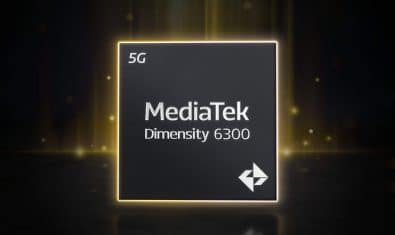It comes as a shock to many that while local cigarette manufacturers enjoy 35% of the cigarette market share in Pakistan, their contribution to the government in the form of cigarette excise duties is a measly 2%. The question arises as to what happened to the other 33%? The answer is very simple – daylight robbery, or what you may call tax evasion.
According to FBR documents, tax evasion by local cigarette manufacturers has led to a decline in the market share of companies that pay duty in the cigarette industry. Cigarette sales data reveals that volumes of two major multinational companies have been on the decline as they sold 54,177 million sticks during 2015-16 as compared to 29, 278 million sticks in 2016-17.
Despite a sharp decline in their market share, these two legal players contribute almost 98% of tax revenues from the tobacco sector. Meanwhile, illicit cigarette manufacturers have caused an estimated loss of over Rs. 130 billion to the national exchequer in past five years.
Pakistan is currently losing about Rs. 35 billion annually from the illicit cigarette trade market, which involves some influential and politically connected people as well. By focusing on enforcement efforts, a reduction in illicit trade, even if by 10 percent, can boost tax collection by Rs. 10 billion.
To help the legitimate cigarette industry players regain its volumes that have been lost via tax evaders, and to increase government revenue from the tobacco sector, a third tier of federal excise duty was introduced through Finance Act, 2017 prescribing federal excise duty @ Rs. 800 per thousand cigarettes. The primary goal of this policy decision was to narrow the price gap between tax-evaded, illegal cigarettes and legal, tax-paid industry, to ideally achieve a situation whereby cigarette volumes return from the illegal sector to the tax paying industry and, consequently, increase tax collection from tobacco sector.
Introduction of the third tier has helped the government recoup its lost revenues as collections from tobacco industry stood at Rs. 88.40 billion in financial year 2013-14, Rs. 102.88 billion in 2014-15 and Rs. 114.19 billion in 2015-16. Thereafter, a sharp decline in revenue to Rs. 83.69 billion was registered for the first time in many years in 2016-17 as most smokers with low disposable income merely shifted their consumption from tax paid cigarettes to cheap, readily available cigarettes being manufactured in Mardan and Azad Jammu & Kashmir (AJ&K) by illicit companies.
Currently there are 40 plus manufacturers selling more than 200 brands of cigarettes in Pakistan. The irony is that these 40 manufacturers, marketing over 200 brands, contribute only 2% of government excise revenue from tobacco.
Besides two multinational cigarette manufacturing companies, the industry is dominated by tax evading manufacturers based in Mardan and Azad Jammu & Kashmir (AJ&K). These illicit manufacturers, who under-declare production to evade taxes and sell their brands below the minimum price set by government, are responsible for more than 85 percent of illicit cigarette trade in Pakistan.
Keeping in mind the high market share of manufacturers based in Mardan and AJ&K, the recently formed special Senate Committee on tobacco revenue should determine whether there has been any decline in FED payments from these manufacturers during the last three years. Any audit or investigation of the tobacco sector should be extended to Mardan and AJ&K manufacturers as well so that the issue of illicit trade can be understood in its full context.
Experts estimate that if FBR continues with its two-pronged strategy of showing consistency in tobacco taxation policy and making hectic enforcement efforts to maintain the momentum in fight against illicit cigarettes in Pakistan, tax contribution of leading cigarette manufacturers could reach Rs. 120 billion in the next two years.
The market share of cigarettes sold from illicit trade has dropped from around 40 percent to 35 percent with the introduction of third tier taxation system and enforcement steps taken by the FBR. Despite the introduction of third tier taxation, the price of branded cigarette stands at Rs. 48 per packet while the price of illicit tobacco packet is Rs. 24 on average. This wide price gap gives the tax evading sector an unfair advantage, resulting in the closure of manufacturing units in the formal sector.


























Its mostly the FBR officers who help these manufacturers in tax evasion. They take percentage bribes otherwise it is very easy to trace tax evasion. A total revamp of FBR itself is required to allow honest officers specially at the top and re-audit measures to curb the corrupt.
This kind of tax evasion is in every industry, from manufacturer’s to traders and retailers.
Cigarettes and any income from them are haraam; a form of self suicide which is haraam in Islam. It is a health risk to the user itself and the society as a whole.